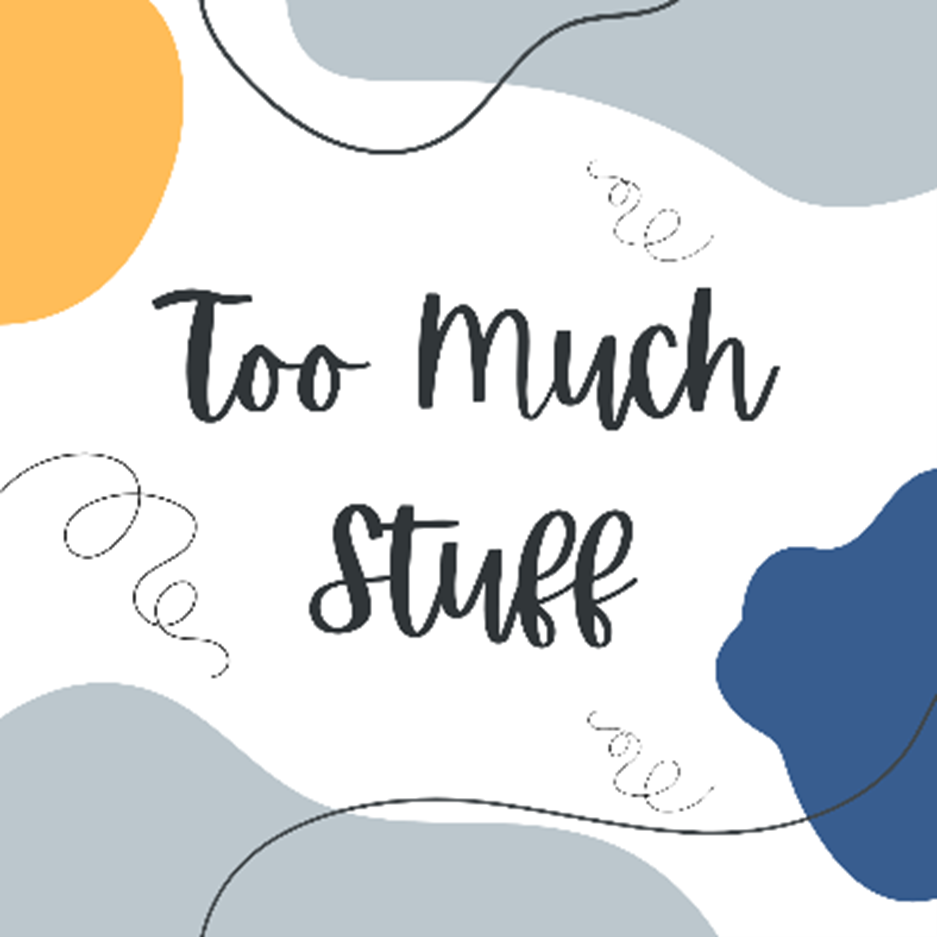by Adapt Training and Development

During a recent trip to the east coast, I spent a day with my dad. One of the things that predictably happens when we see each other is that my father tries to give me stuff and I try not to take it. My father is not a hoarder, but he could be called a packrat, which is to say that he and my stepmother live in a smallish house with a full (of boxes) basement, a full (of more boxes) garage, and a storage unit. As a person who grew up without very much and a life-long lover of yard sales, flea markets, used bookstores, and auctions, my father’s place is brimming with stuff.
The visit reminded me of a lovely essay by Ann Patchett from her collection These Precious Days titled “My Year of No Shopping” (spoiler alert: she did allow herself to buy things at the grocery store, but no clothes, shoes, home goods, etc.). Along with not buying, Patchett and her husband went through their home, culling out all the items they had accumulated over the years and no longer needed. My husband and I attempt this every so often and usually thin out less than we hoped. I suspect both of us think the other is keeping all sorts of nonsense that they should give away. Patchett’s essay got me thinking about stuff, how much of it many of us have, what we really love and use, and how much mental energy thinking about our wants takes up. Could you go a year without buying anything non-essential? It’s an interesting idea!
What is known about our stuff is a little shocking. The U.S. has only 3.1% of the world’s children but 40% of the world’s toys, and Americans spend $1.2 trillion annually on non-essential items. An estimated 36% of Americans surveyed say their garage is so cluttered, they are unable to park their cars inside. A Time Magazine article on “America’s Clutter Problem” says that “most household moves outside the U.S. weigh from 2,500 lb. to 7,500 pounds, and the average weight of a move in the U.S. is 8,000 pounds—about the weight of a fully grown hippo. I don’t list these statistics to be critical of anyone with a large house or a garage they are unable to park their car in; rather, to illustrate the point that many of us have good reason to feel that the amount of stuff in our lives is getting a little out of control.
The references reviewed for this blog unanimously report that far from making us happier, having lots of stuff has a negative impact on our well-being. An article in the Vancouver Sun (2019) says that most of us feel stress when we are in a cluttered environment. It costs us time and energy when we can’t locate things, and one study reported that American adults spend 17 minutes each day looking for things in their homes. Too much visual stimuli can make it hard to focus. We may feel shame or embarrassment about the state of our living spaces. The Royal Australian College of General Practitioners asserts that “clutter can impact our anxiety levels, sleep, and ability to focus.” VeryWell Mind also notes that clutter can harm our relationships—because we may argue about it with others in our household and if we feel embarrassed about it, we’re less likely to have people over, potentially contributing to social isolation.
So, what can we do to reign in what the Times Magazine calls our “inner squirrel”? Here are some ideas from the website, Psyche, to help you get started:
- Recognize why we get attached to our stuff. “Our relationship to our things has deep psychological roots.” Maybe our things remind us of times in our lives, people we care about, or better versions of ourselves.
- Acknowledge the benefits of scaling down—you will save money, have less stress, and help the environment.
- Identify your spending triggers and reinforcers and make a specific commitment to how you’ll do things differently (lots of good tips in the Psyche article).
- Develop a strategy to resist impulse buys—for instance, making a deal with yourself to wait a day or two.
- Make a plan to discard things—these are some good tips.
- Make plan to keep from re-accumulating (“a river, not a pond” is a way a friend of mine describes not letting her house get too filled up. If something comes in, then other things go out.